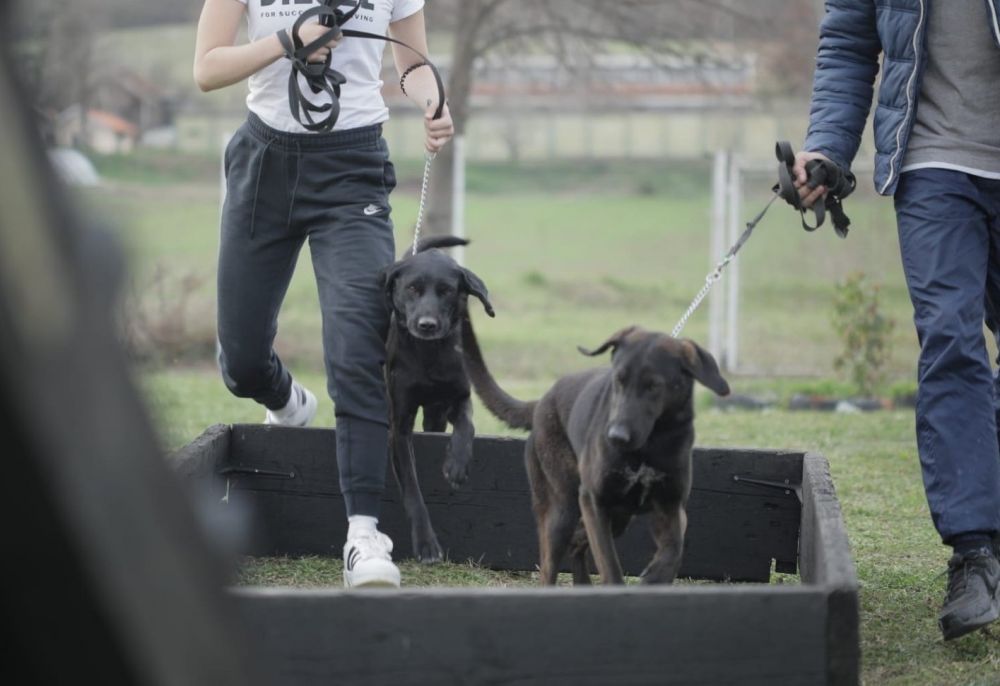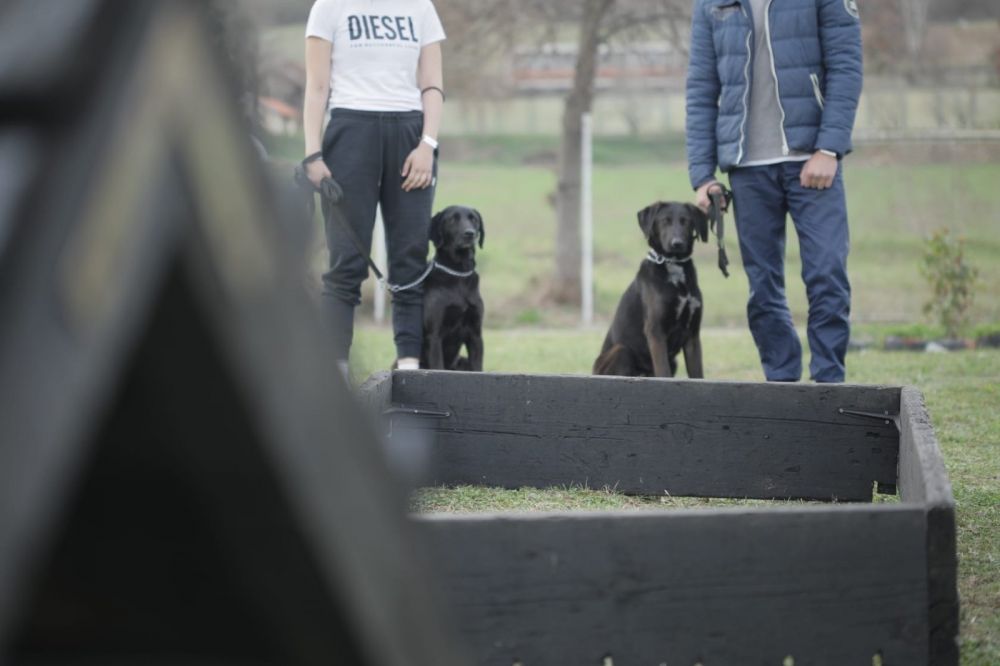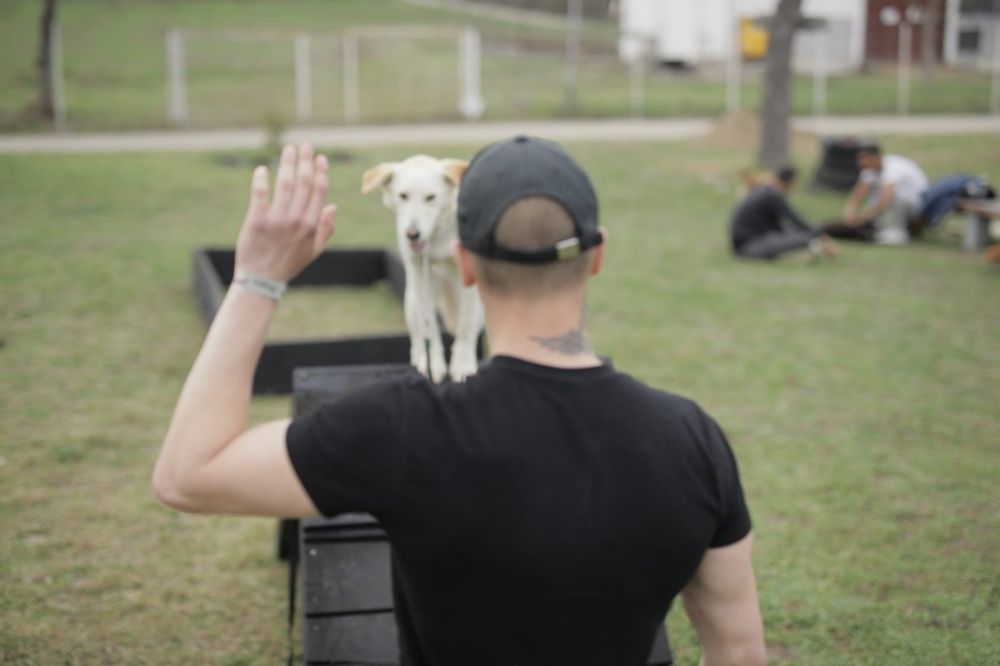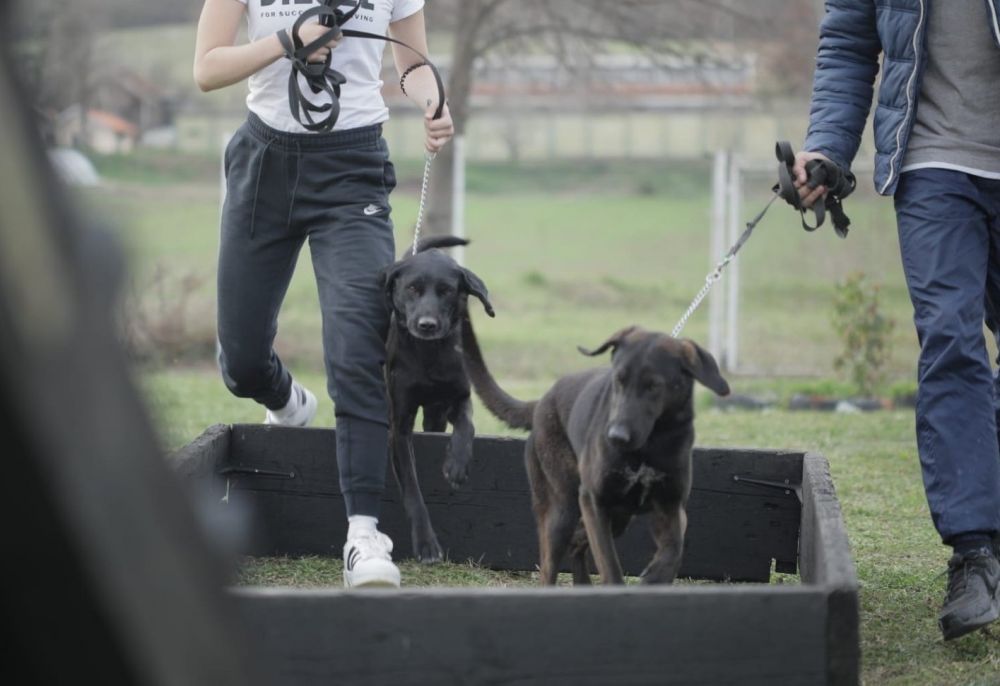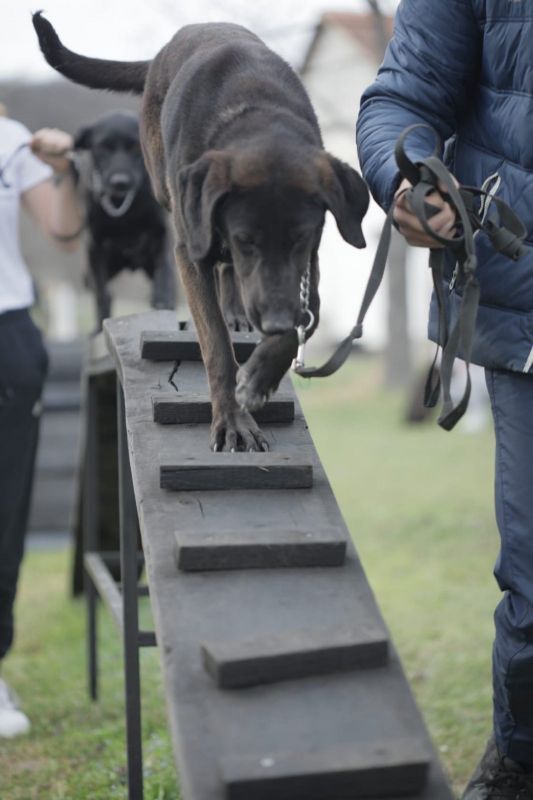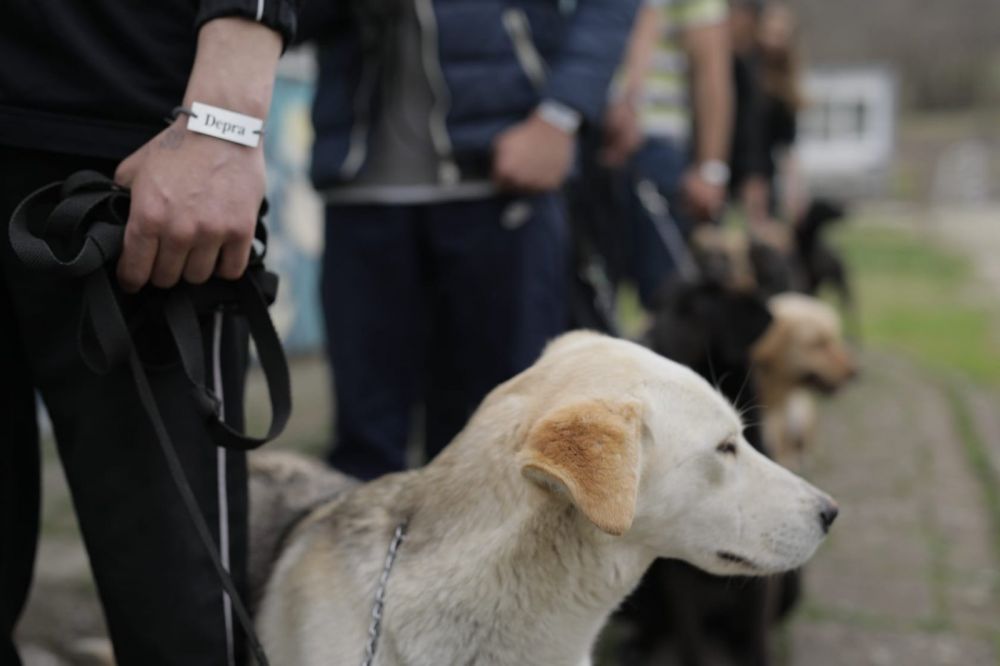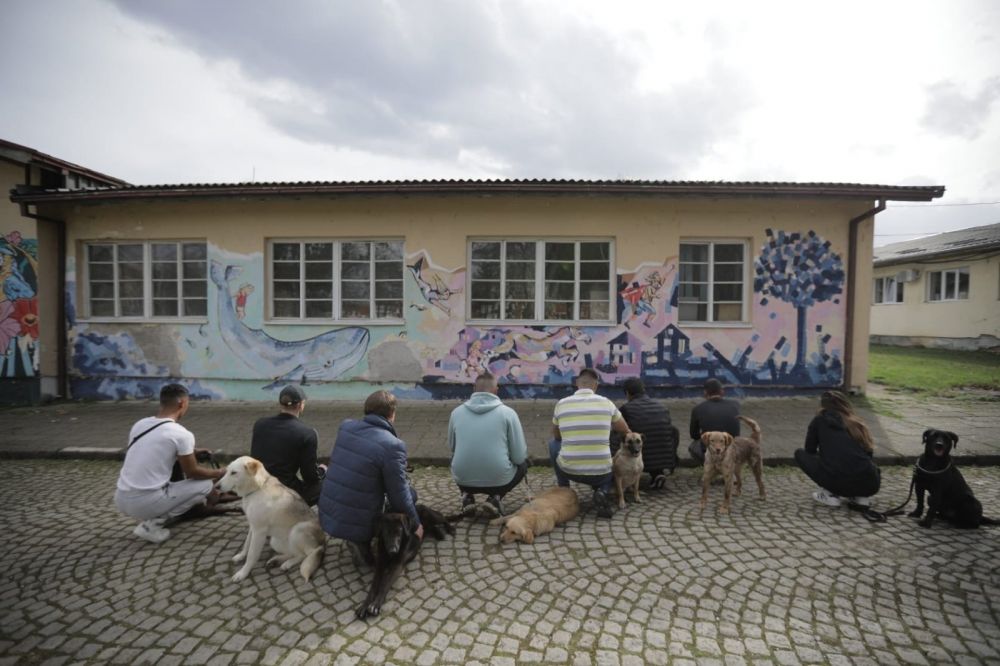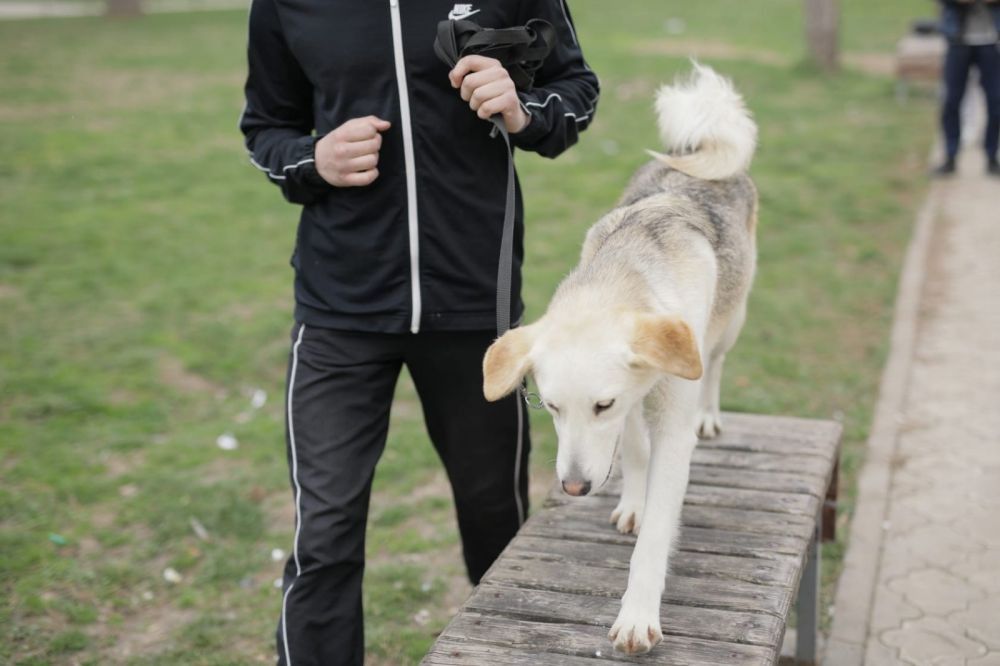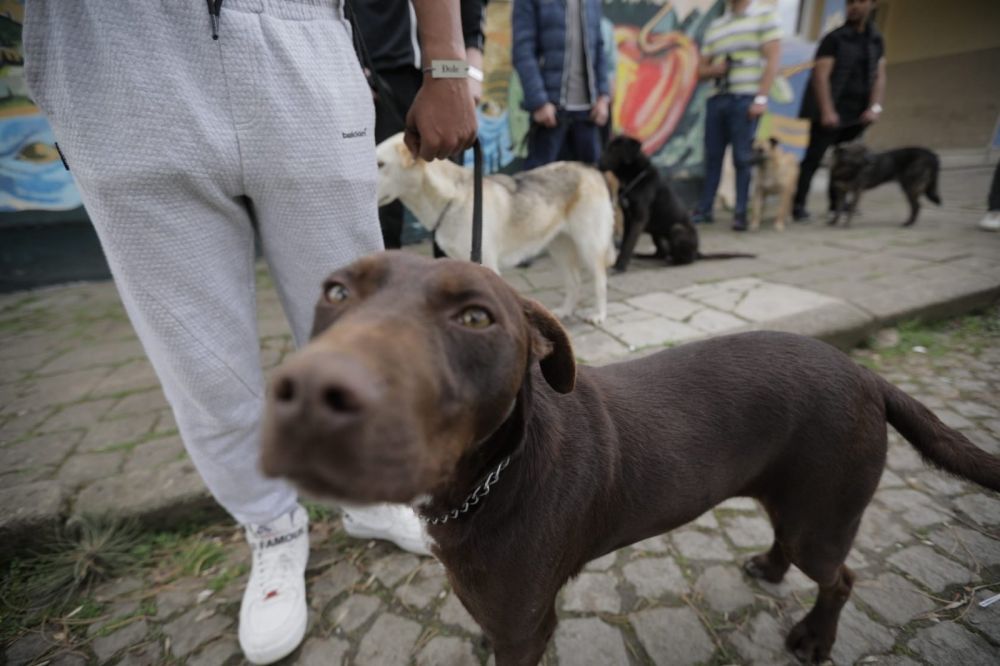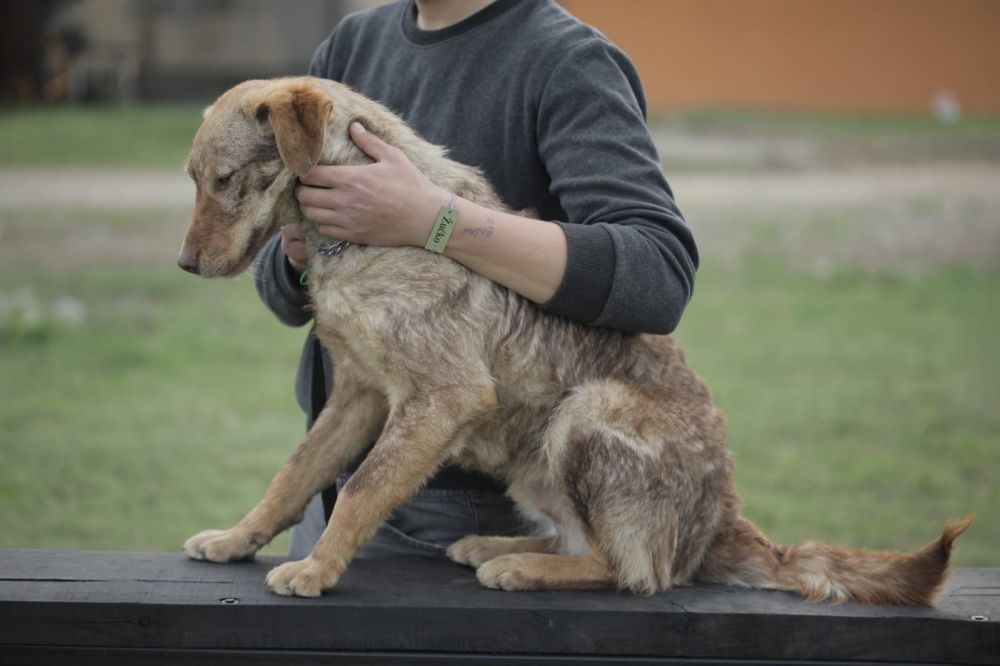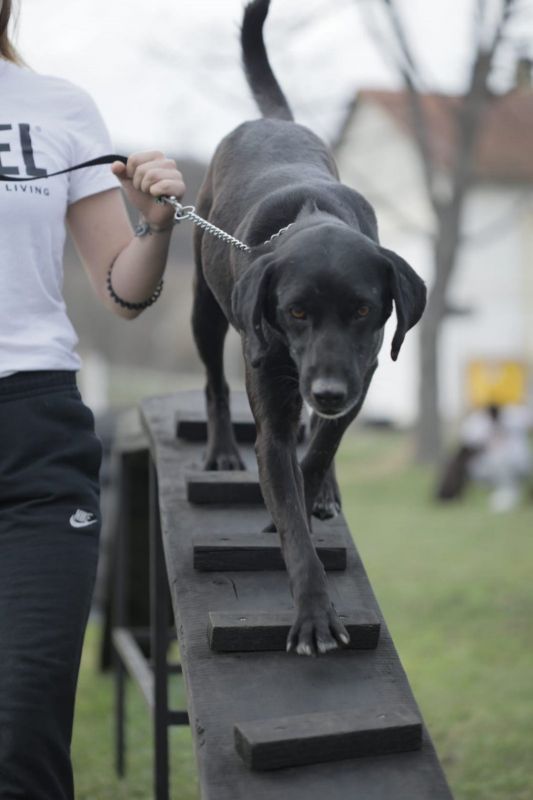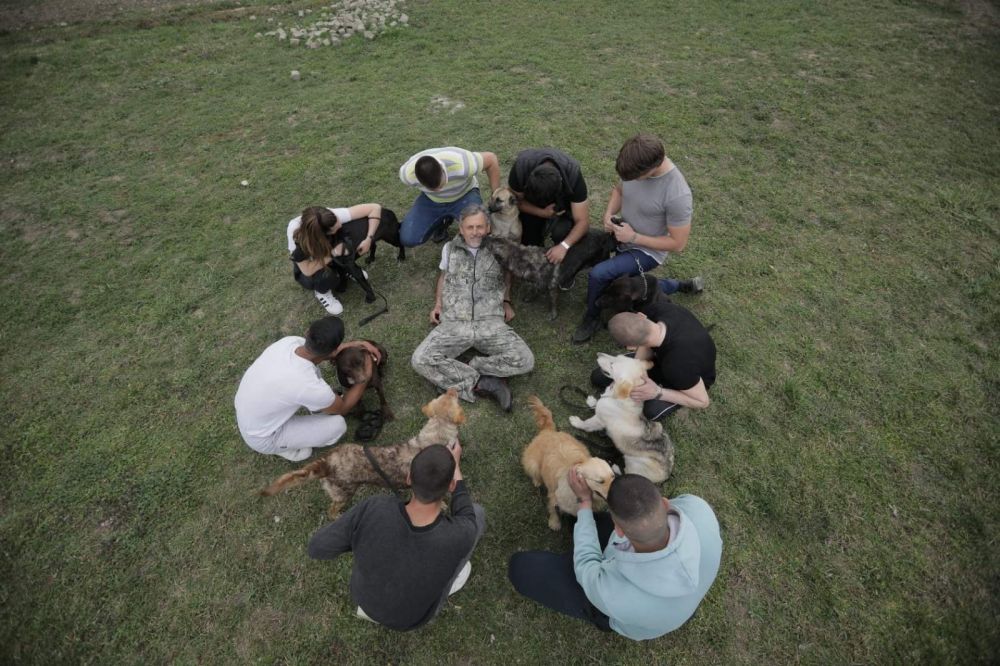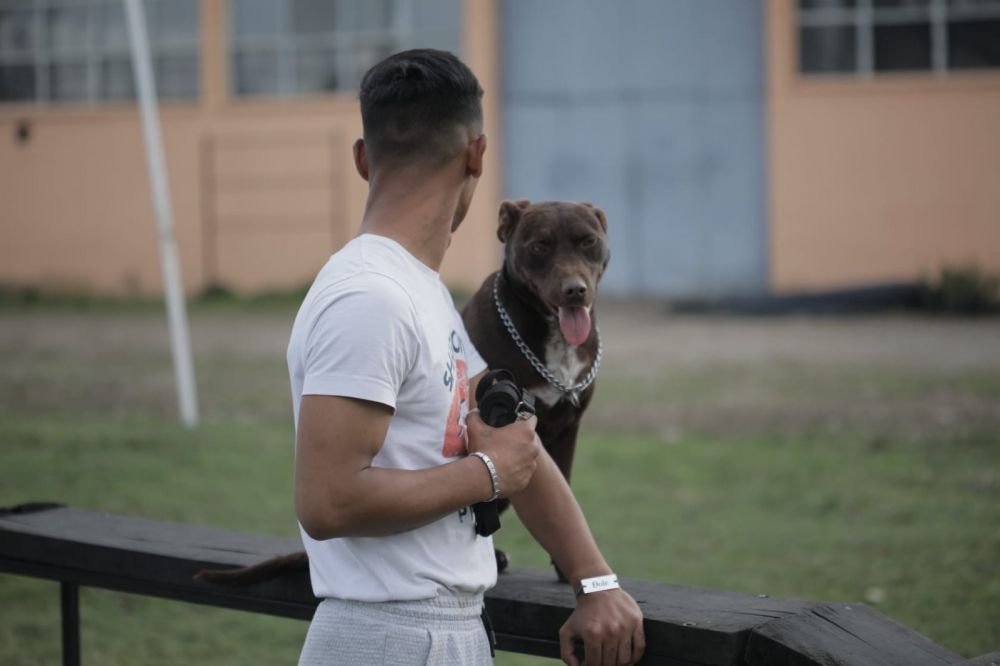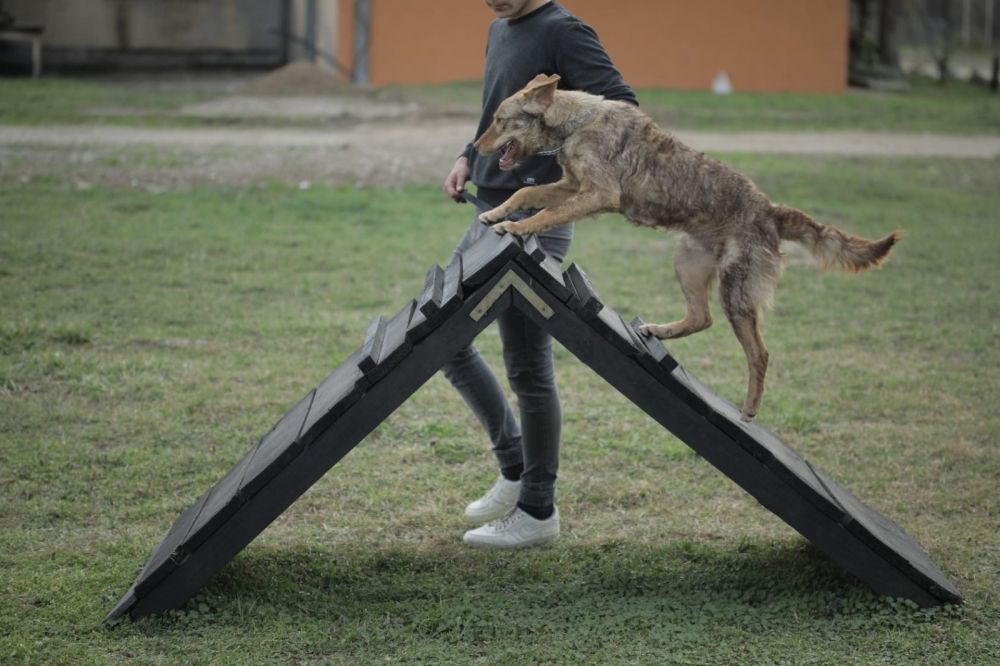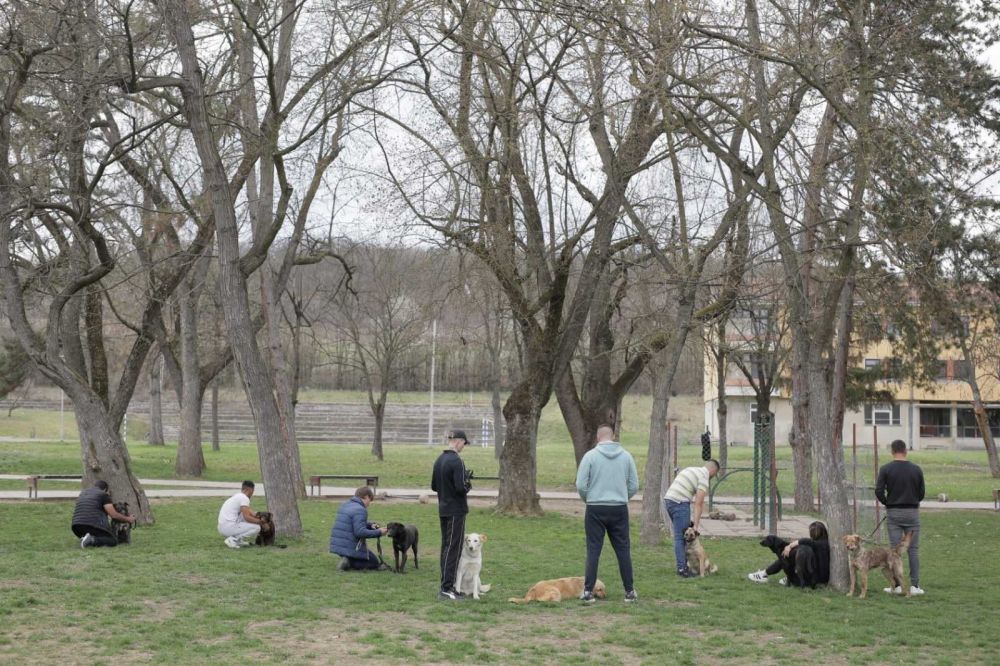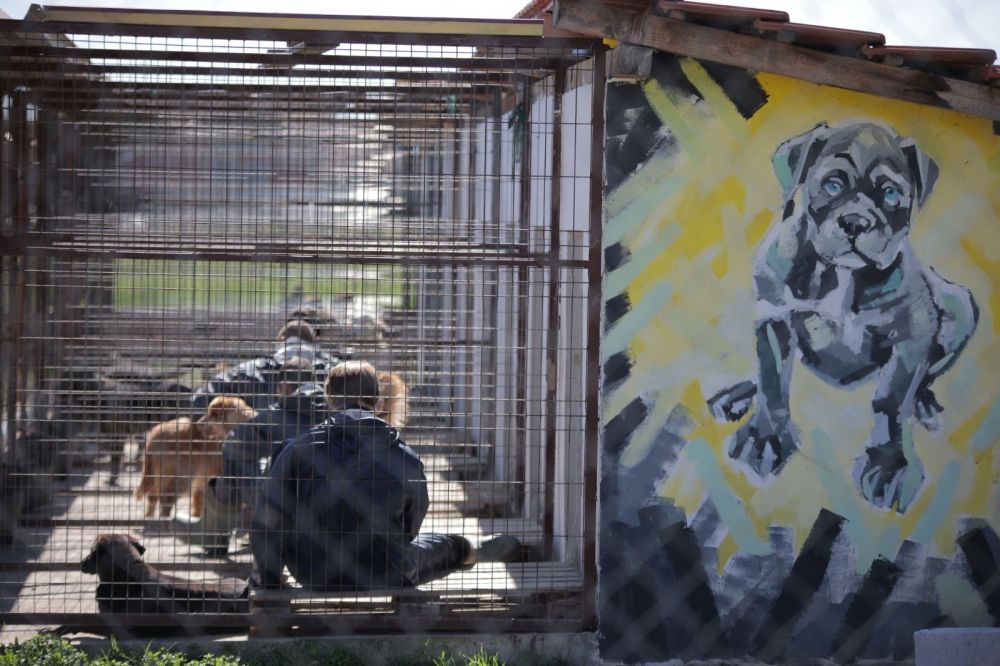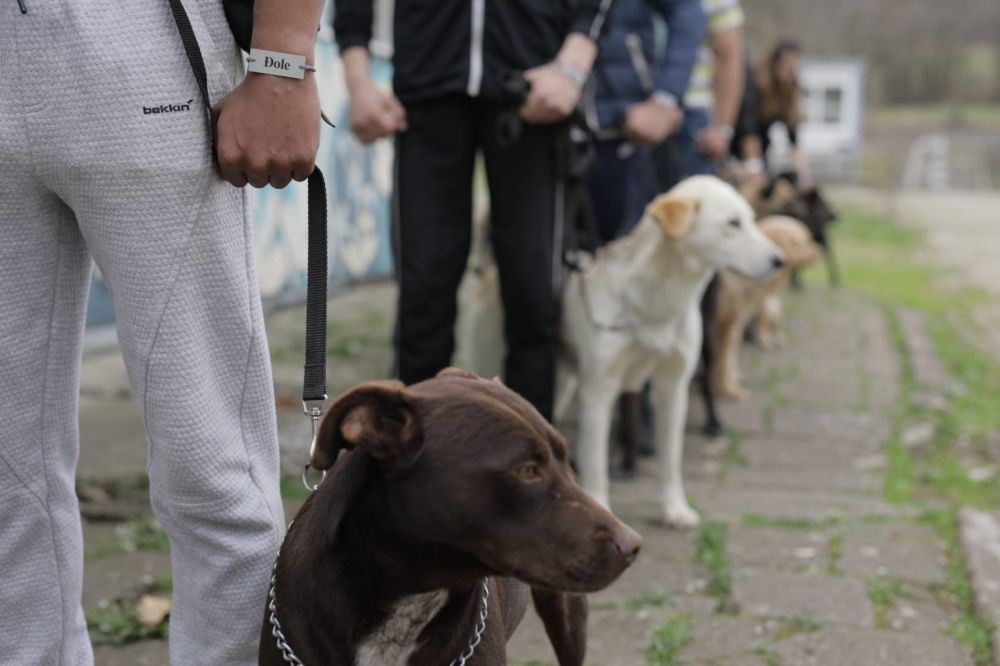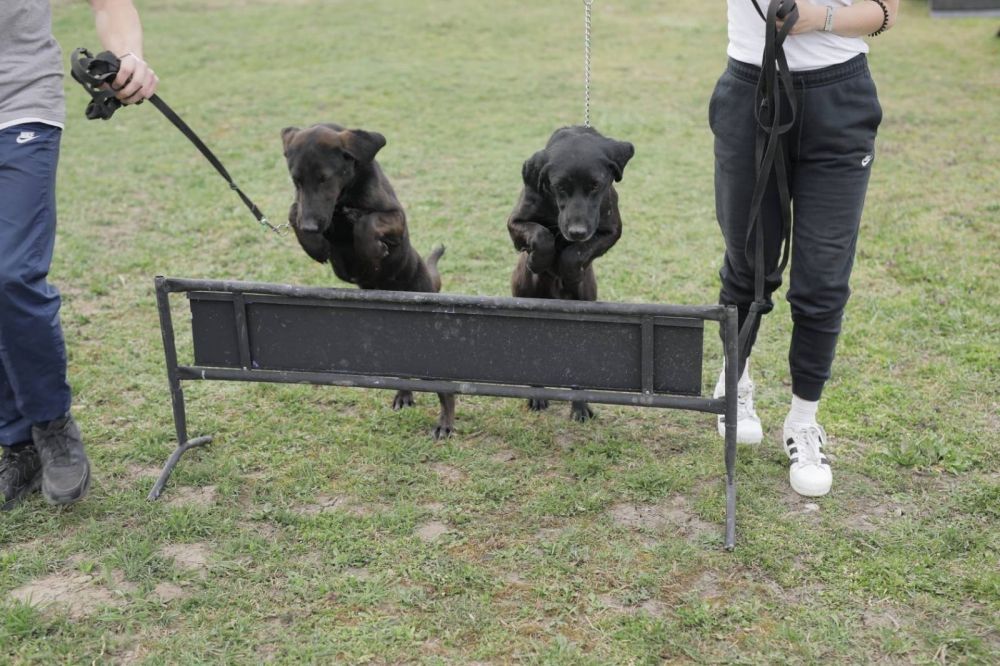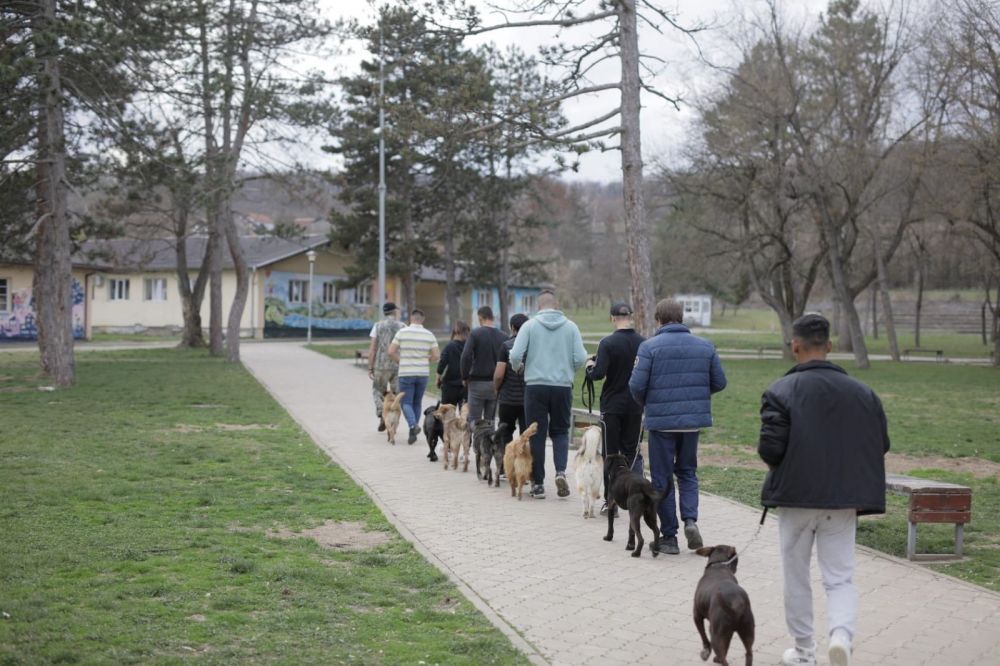At the Juvenile Correctional Facility in Kruševac, with the support of the Ana and Vlade Divac Foundation and long-time donor and philanthropist from diaspora, Anka Erne, a unique training program has been successfully implemented—combining animal care with the development of life and professional skills. Over the course of the four-month project “Dog Training as a Path to the Resocialization of Juvenile Offenders,” 20 young residents of the facility participated in a process of learning how to work with dogs, while also gaining a deeper understanding of themselves and their potential. Among the carefully selected participants—chosen based on their motivation for change and willingness to acquire new skills—were four girls.
The project was divided into two segments. In the first phase, participants were trained in the basics of dog handling, communication, and care, while also developing responsibility, empathy, and teamwork. In the second phase, their role was to prepare the dogs they had trained for adoption. Four juveniles expressed a wish to adopt the dog they had worked with after leaving the facility, while the remaining dogs will be made available for adoption through a final public event and a media campaign that wiil be promoted through local media and social networks.
In addition to the training, five existing dog kennels were reconstructed and five new ones were built, creating safe and adequate conditions for both the animals and future training sessions.
Five staff members from the facility, including two unit commanders, also completed specialized training to ensure the continuation of the program in the years to come, further securing the long-term sustainability of the initiative.
By the end of the program, nine juveniles received official dog handler certificates, giving them the opportunity to pursue professional engagement after release—whether in dog training centers, animal shelters, or as private trainers. Other participants will have the opportunity to obtain their certificates in future phases of the program.
Following a proposal by donor Anka Erne, one of the future phases of the project may introduce a model used in some European countries, where dogs are allowed into the residential spaces of juveniles. This would provide the youth with more time to bond with the animals, enhancing emotional connection and a sense of responsibility.
This project has proven that with trust, expert support, and a real opportunity—change is not only possible, it truly happens.
